Spatial reasoning Normal Worksheets for Ages 6-8
5 filtered results
-
From - To
Enhance your child's spatial reasoning skills with our engaging worksheets designed for ages 6-8. These normal worksheets, available for easy printing, feature fun and interactive activities that help young learners grasp essential concepts such as shapes, patterns, and spatial relationships. By completing these exercises, children will strengthen their problem-solving abilities and improve their understanding of the world around them. Perfect for classroom use or at-home learning, our worksheets promote critical thinking and cognitive development in an enjoyable format. Foster a love for learning while building foundational skills that will benefit your child throughout their educational journey. Start exploring today!
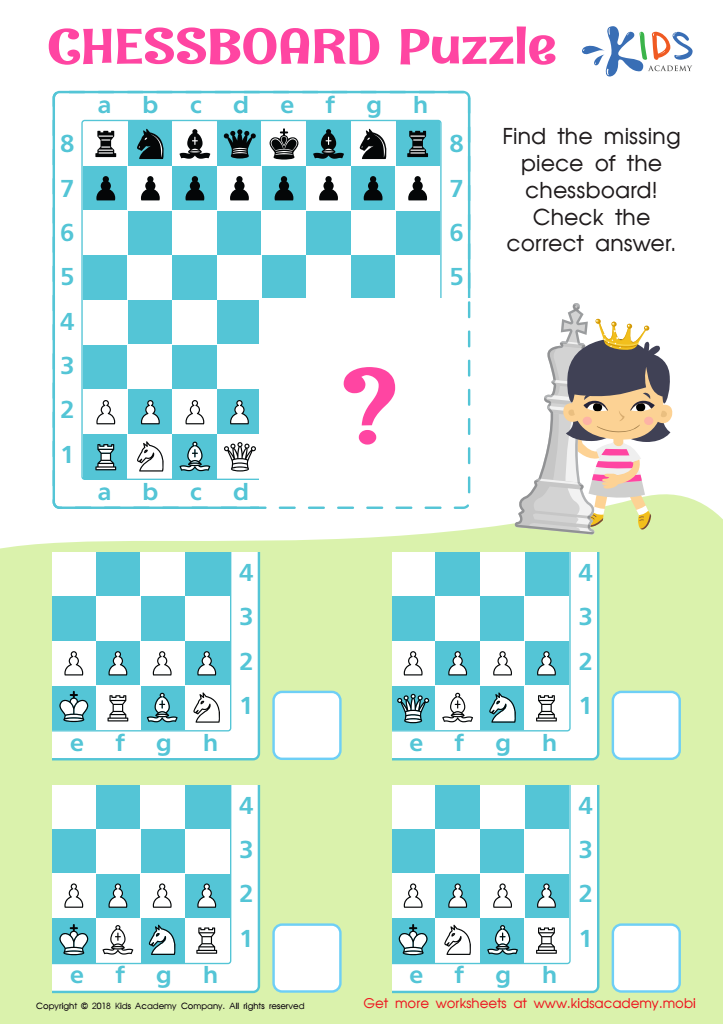

Chessboard Puzzle Worksheet
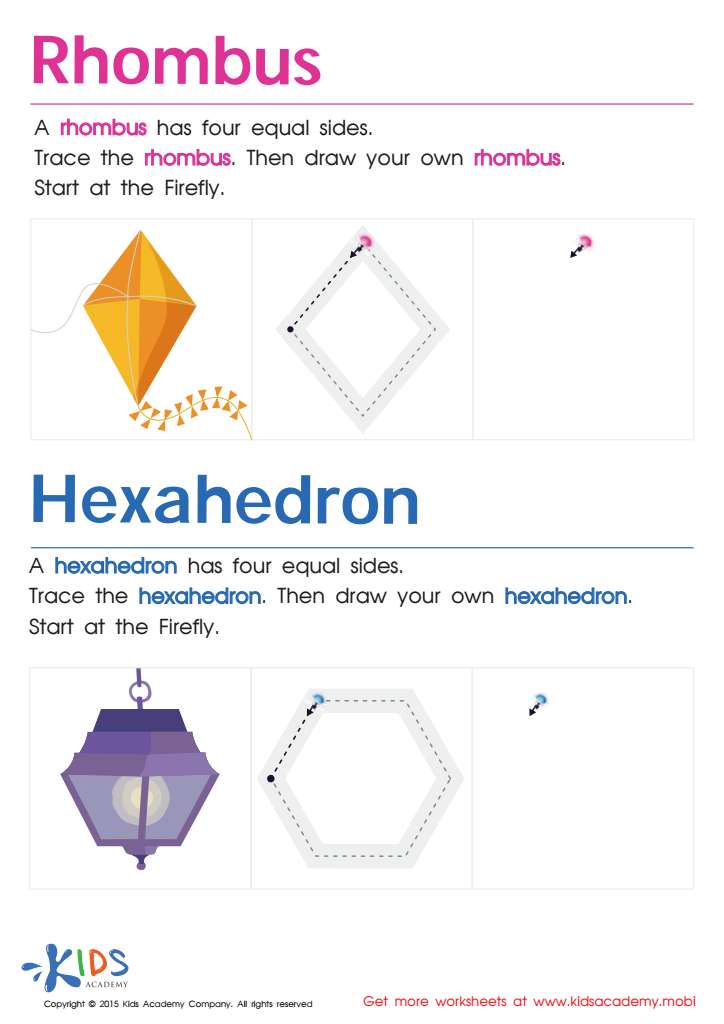

Draw a Rhombus And a Hexahedron Printable
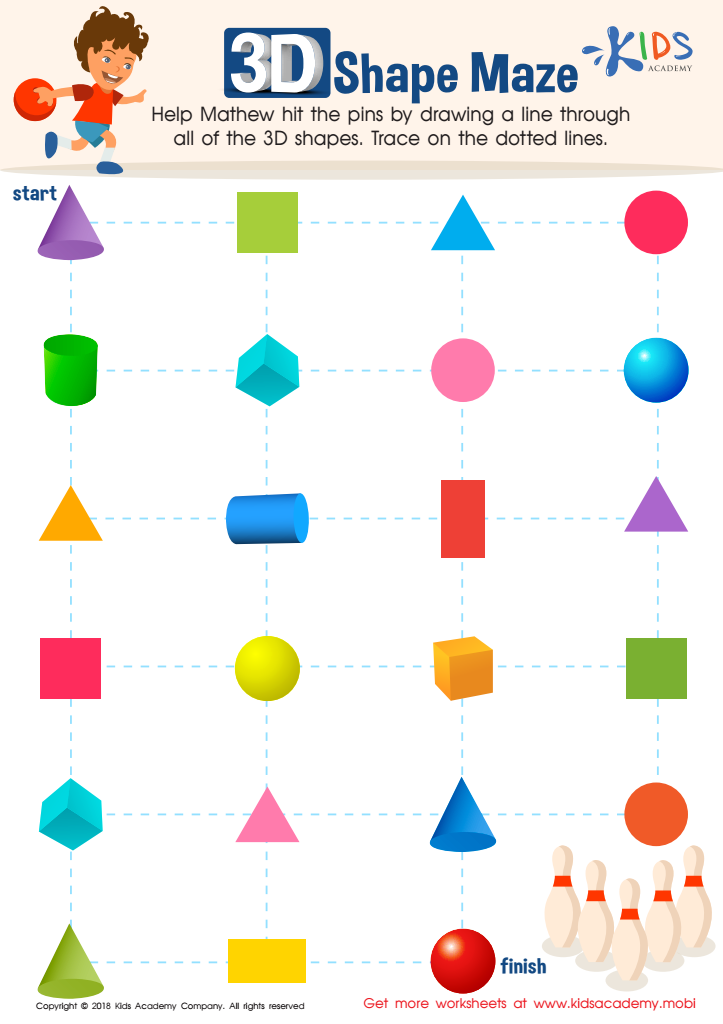

Shapes Maze Geometry Worksheet
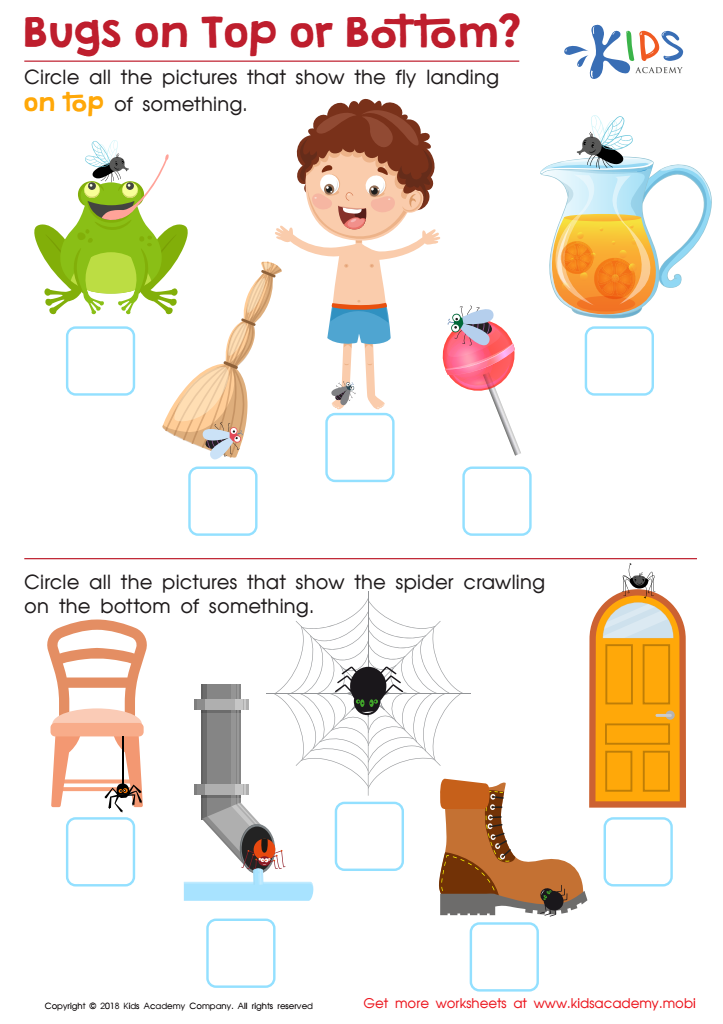

Bugs on Top or Bottom? Worksheet
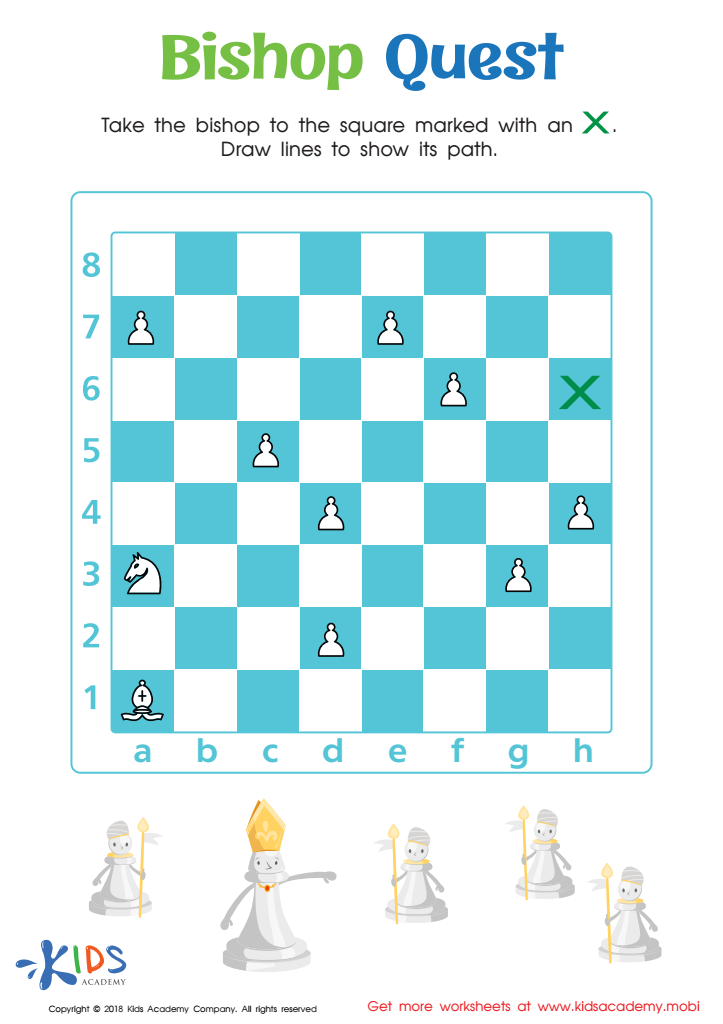

Bishop Quest Worksheet
Spatial reasoning is a crucial cognitive skill that enables children to understand and manipulate the space around them. For children aged 6 to 8, spatial reasoning directly influences their ability to excel in various subjects, particularly in mathematics, science, and art. Parents and teachers should care about this skill because it supports problem-solving and critical thinking.
At this age, children are developing foundational concepts such as geometric shapes, patterns, and measurements. Strong spatial reasoning helps them visualize and comprehend these concepts more thoroughly. Children with well-developed spatial skills often have better abilities in subjects that require abstract thinking and reasoning.
Moreover, spatial reasoning contributes to everyday skills such as reading maps, understanding diagrams, and interpreting visual information. By fostering spatial skills, parents and teachers promote independent learning and confidence in students.
Additionally, promoting spatial reasoning can enhance collaboration and communication abilities among peers as children explore and discuss geometric concepts or tackle hands-on projects. Investing in spatial reasoning during these formative years lays the groundwork for future academic and professional success, enriching a child's education and supporting overall cognitive development. Therefore, engaging activities that involve spatial reasoning should be integrated into educational curricula and home learning experiences.
 Assign to My Students
Assign to My Students








.jpg)













